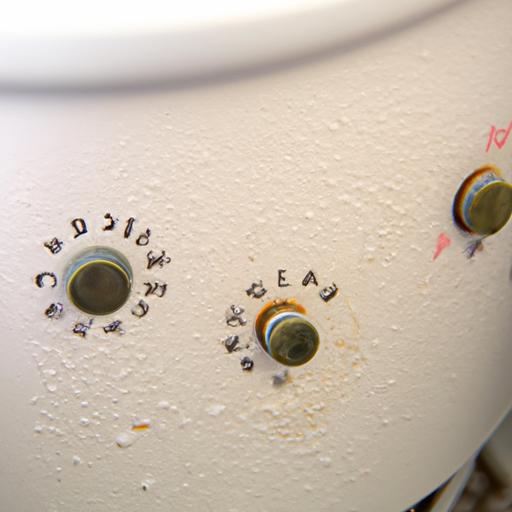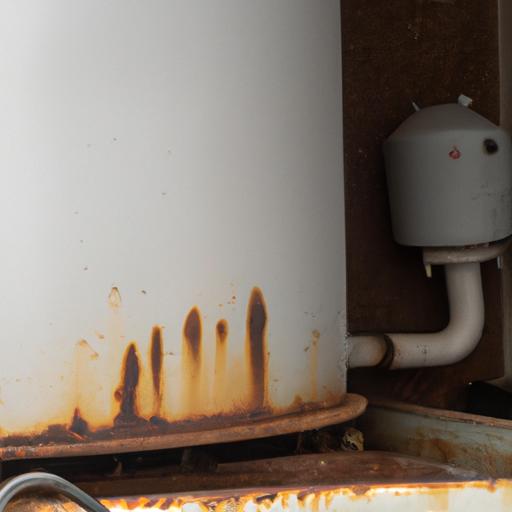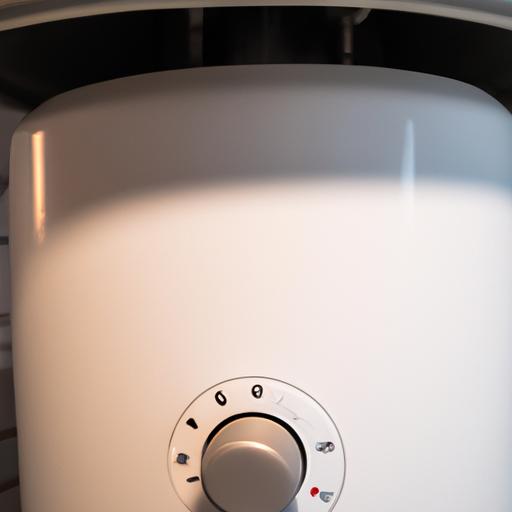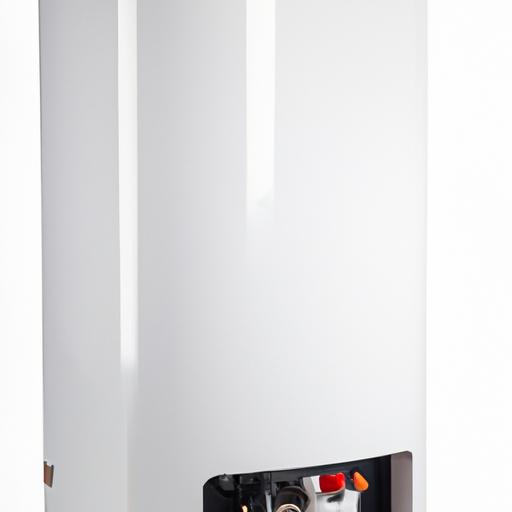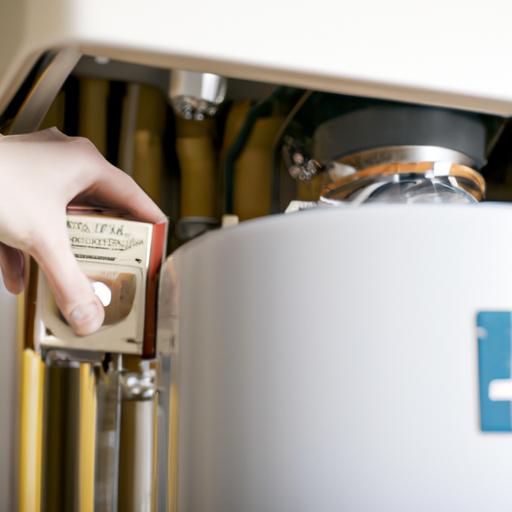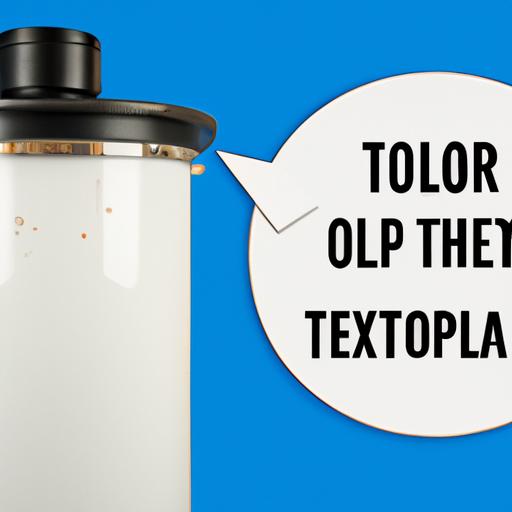Introduction
In today’s fast-paced commercial world, having a reliable gas water heater is crucial for smooth operations. Whether it’s a bustling restaurant, a busy hotel, or a thriving manufacturing facility, a malfunctioning gas water heater can spell disaster. But fear not! In this comprehensive guide, plumbingrepairtips.com will walk you through the steps of fixing commercial gas water heaters, ensuring your business stays on track and your customers remain satisfied.
Commercial gas water heaters are specifically designed to meet the demanding hot water needs of businesses. These powerful appliances provide a constant supply of hot water to various areas, such as kitchens, restrooms, and laundry facilities. They play a vital role in maintaining hygiene, comfort, and productivity in commercial settings.
Imagine the chaos that would ensue if your restaurant’s kitchen suddenly lost hot water during peak hours. Dishes would pile up, food preparation would come to a standstill, and customers would be left frustrated. That’s why it’s essential to keep your commercial gas water heater in optimal condition.
The purpose of this article is to provide you with valuable guidance on fixing commercial gas water heaters. Whether you’re a business owner, a facility manager, or a dedicated employee, learning how to troubleshoot and resolve common issues will save you time, money, and headaches. So, let’s dive into the world of commercial gas water heater repairs and maintenance, ensuring your business runs smoothly without any hot water hiccups.
Common Issues with Commercial Gas Water Heaters
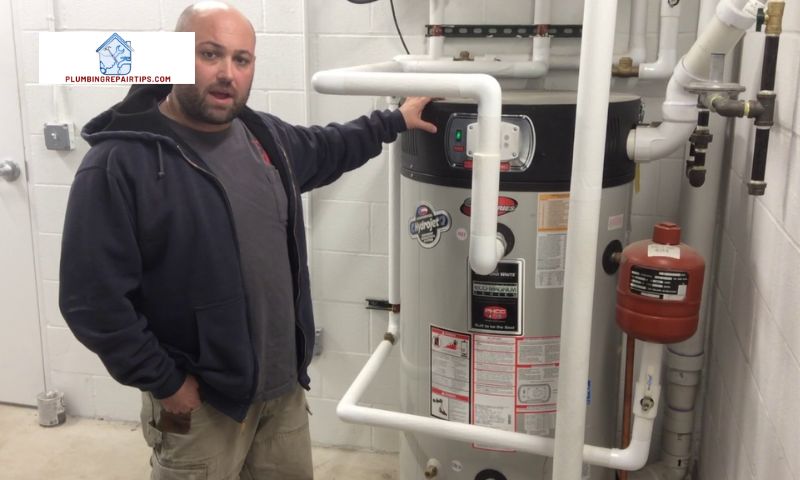
A. Description of Typical Problems Encountered in Commercial Gas Water Heaters
When it comes to commercial gas water heaters, several common issues can arise. Understanding these problems will empower you to identify and address them promptly. One prevalent problem is a faulty pilot light, which can result in a complete loss of hot water. Another issue is a malfunctioning burner, leading to insufficient heating or inconsistent temperatures. Additionally, gas leaks, sediment buildup, or thermostat failures can hinder the performance of your commercial gas water heater.
B. Identifying Signs of Malfunctioning Gas Water Heaters
To effectively address issues with your commercial gas water heater, it’s crucial to recognize the signs of a malfunctioning unit. Are you experiencing lukewarm water instead of the expected hot water? Is there a strange odor or noise emanating from the heater? These signs indicate that something is amiss and require your attention. Keep an eye out for water leaks, irregular water temperature, frequent pilot light outages, or a sudden rise in gas bills. By being vigilant and proactive, you can prevent minor problems from escalating into major complications.
C. Importance of Addressing Issues Promptly to Avoid Further Damage and Safety Hazards
Ignoring issues with your commercial gas water heater can have dire consequences. Not only can it disrupt your business operations, but it can also lead to safety hazards. Gas leaks, for example, pose a serious threat to both your employees and customers. Delaying repairs can also result in more extensive damage to the heater, leading to costly replacements. By addressing problems promptly, you not only safeguard the well-being of your business but also ensure the smooth functioning of your commercial gas water heater, providing consistent hot water when you need it most.
Precautions and Safety Measures

Ensuring Safety in Gas Appliance Maintenance
When it comes to dealing with gas appliances, safety should always be at the forefront of your mind. Gas water heaters, in particular, require careful handling to prevent accidents and potential harm. Before diving into any repairs, it’s crucial to understand the significance of safety measures.
Gas leaks, faulty connections, and improper handling can lead to dangerous situations such as fires, explosions, or carbon monoxide poisoning. Therefore, it’s vital to familiarize yourself with the necessary precautions and safety measures to safeguard yourself, your team, and your business.
Taking Necessary Precautions
Before attempting any repairs on a commercial gas water heater, take these essential precautions:
1. Cut off the Power and Gas Supply
Before touching any components of the gas water heater, turn off the power supply from the circuit breaker and shut off the gas valve. This ensures that no electricity or gas is flowing through the system, reducing the risk of electrical shocks or gas leaks.
2. Allow Sufficient Cooling Time
Gas water heaters can reach high temperatures, so give the system ample time to cool down before starting any maintenance work. This prevents burns or scalds caused by hot surfaces.
3. Wear Protective Gear
Always wear appropriate protective gear, such as gloves and safety goggles, when working on a gas water heater. This shields you from potential injuries and keeps you safe from harmful chemicals or hot water.
Seeking Professional Assistance
While some repairs can be handled independently, complex or dangerous issues require the expertise of a professional. If you encounter problems like gas leaks, major component failures, or intricate electrical connections, it’s best to reach out to a licensed technician who specializes in commercial gas water heater repairs.
Remember, your safety and the safety of others should always be the top priority. Don’t hesitate to seek professional assistance when needed to ensure proper repairs and minimize risks associated with gas appliances. By taking the necessary precautions and knowing when to call in the experts, you can maintain a safe working environment and keep your commercial gas water heater operating smoothly.
Troubleshooting Steps for Fixing Commercial Gas Water Heaters

Having a basic understanding of troubleshooting techniques can save you both time and money when it comes to fixing common issues with commercial gas water heaters. Let’s explore some step-by-step instructions and recommendations to help you identify and address these problems effectively.
A. Step-by-step instructions for basic troubleshooting
- Checking power supply and connections: Start by ensuring that the gas water heater is receiving power. Check for any loose or disconnected electrical connections. Faulty wiring can disrupt the functioning of the heater, so it’s important to address any issues in this area.
- Evaluating gas supply and pressure: Verify that the gas supply to the water heater is uninterrupted. Inspect the gas valve to ensure it is in the correct position. Additionally, measure the gas pressure using a manometer to ensure it falls within the recommended range.
- Inspecting the pilot light and burner assembly: The pilot light is a crucial component of a gas water heater. Check if the pilot light is lit and if the flame is steady and blue. If the pilot light keeps going out or the flame is yellow or flickering, it may indicate a problem. Additionally, inspect the burner assembly for any signs of damage or blockage.
B. Recommendations for addressing common issues during troubleshooting
- Fixing pilot light issues: If the pilot light keeps going out, it could be due to a faulty thermocouple or a buildup of dirt and debris. Clean the pilot orifice and ensure the thermocouple is properly positioned and functioning. If the issue persists, consider replacing the thermocouple.
- Resolving burner problems: A malfunctioning burner can result in inadequate heating or inconsistent hot water supply. Clean the burner ports to remove any obstructions or debris that may be affecting its performance. If cleaning doesn’t solve the issue, a professional may need to inspect and repair the burner assembly.
- Addressing gas leaks or odors: If you detect a gas leak or notice a strong odor of gas near the water heater, it’s crucial to take immediate action. Turn off the gas supply, evacuate the area, and contact a professional technician to locate and repair the gas leak safely.
C. Guidelines for safely and effectively utilizing manufacturer’s manuals and guides
Manufacturers provide detailed manuals and guides specific to their gas water heater models. These resources offer valuable insights into troubleshooting, maintenance, and safety procedures. Familiarize yourself with the manufacturer’s recommendations and follow the guidelines outlined in the manual to ensure safe and effective repairs.
By following these troubleshooting steps and recommendations, you’ll be equipped with the knowledge to diagnose and fix common issues with your commercial gas water heater. However, remember that some repairs may require the expertise of a professional technician, especially when dealing with complex components or potential safety hazards.
Advanced Repairs and Maintenance
Exploring Complex Issues that Require Professional Intervention
When it comes to commercial gas water heaters, certain issues may require the expertise of a professional. These complex problems should not be tackled on your own unless you have the necessary experience and knowledge. Let’s take a closer look at two common complications that often necessitate professional intervention:
1. Dealing with Faulty Thermocouples or Gas Valves
The thermocouple is a critical component that ensures the gas valve remains open when there is a pilot flame present. If the thermocouple malfunctions, it may cause the gas valve to shut off, resulting in a lack of hot water. Repairing or replacing a faulty thermocouple requires precision and technical expertise. It’s best to leave this task to a trained professional who can safely handle the intricate inner workings of your commercial gas water heater.
2. Repairing or Replacing Damaged Heat Exchangers
The heat exchanger is responsible for transferring heat from the gas burner to the water, ensuring efficient heating. Over time, heat exchangers can corrode or develop cracks, leading to leaks or inefficient heating. Repairing or replacing damaged heat exchangers is a complex job that requires specialized knowledge and equipment. It’s crucial to consult a professional technician who can assess the severity of the damage and recommend the most appropriate course of action.
Importance of Regular Maintenance for Longevity
Prevention is always better than cure, and this holds true for commercial gas water heaters as well. Regular maintenance plays a vital role in preventing major breakdowns and extending the lifespan of your water heater. Here are a few essential maintenance tasks to keep your unit in top shape:
1. Flushing the System to Remove Sediment Buildup
Over time, sediment and mineral deposits can accumulate at the bottom of the tank, reducing the efficiency and performance of your gas water heater. Flushing the system periodically helps remove these deposits, ensuring optimal heat transfer and preventing corrosion.
2. Inspecting and Cleaning the Burner Assembly
The burner assembly is responsible for igniting the gas and producing heat. Regular inspection and cleaning of the burner assembly ensure proper combustion and prevent issues such as inefficient heating or a malfunctioning pilot light. A professional technician can clean the burner assembly thoroughly, ensuring it operates at peak efficiency.
3. Checking and Replacing Anode Rods as Needed
Anode rods are sacrificial components that protect the water heater tank from corrosion. Over time, these rods deteriorate and need replacement. Regular inspection and replacement of anode rods can significantly extend the lifespan of your commercial gas water heater, saving you from costly repairs or premature replacements.
By investing in regular maintenance and addressing complex issues with professional assistance, you can ensure your commercial gas water heater operates smoothly, efficiently, and reliably, providing hot water when you need it most. Stay tuned for the upcoming sections where we’ll delve into troubleshooting steps and safety measures to keep your gas water heater in excellent working condition.
Conclusion
In conclusion, fixing commercial gas water heaters is a crucial task that should not be taken lightly. The smooth operation of these appliances is essential for businesses in various industries, ensuring customer satisfaction, productivity, and safety.
Throughout this comprehensive guide, we have explored the importance of addressing issues promptly, taking necessary precautions, and troubleshooting common problems. Remember, safety should always be a top priority when dealing with gas appliances, and if you encounter complex or dangerous repairs, it is best to seek professional assistance.
Regular maintenance is key to preventing major breakdowns and extending the lifespan of your commercial gas water heater. Flushing the system, inspecting and cleaning the burner assembly, and checking and replacing anode rods are simple yet effective steps that can make a significant difference.
By following the guidelines provided in this article, you can become adept at fixing commercial gas water heaters, saving your business time, money, and inconvenience. Stay proactive, address issues promptly, and prioritize regular maintenance to ensure your gas water heater operates at its best.
Now, armed with the knowledge and skills necessary to tackle common problems, you can keep your business running smoothly and your customers happy. So go ahead, conquer those gas water heater issues, and enjoy uninterrupted hot water in your commercial establishment. Your success awaits!
